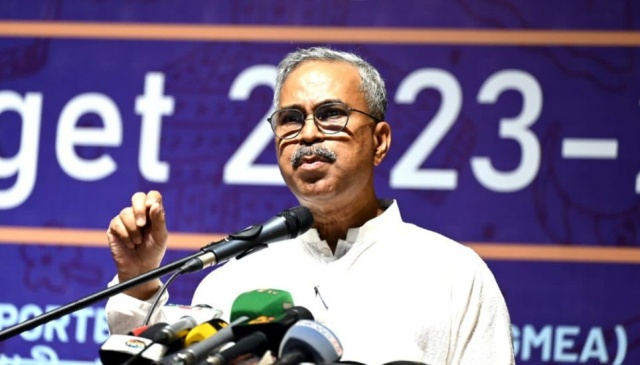
Bangladesh Garment Manufacturers and Exporters Association (BGMEA) President Faruque Hassan has said the new “Developing Countries Trading Scheme (DCTS)” will contribute to Bangladesh’s integration into the global economy, creating stronger trade and investment partnership with the United Kingdom.
“You are aware that the BGMEA is continuously working in the arena of market access under the apparel diplomacy initiative. The DCTS has followed a robust consultation process with stakeholders,” he said in a letter to the BGMEA members.
The UK is the third largest export destination for Bangladesh.
Apart from the UK, Faruque said they have also been able to secure positive outcomes in market access to Canada and Australia.
“As far as the ready-made garment product is concerned, we exported $5.02 billion worth of clothing to the UK in the last fiscal year 2022-23, which was $4.50 billion in FY2021-22 showing 11.78 per cent growth year over year,” he said.
And during the January-July period of 2023, the RMG exports to the UK reached $3.11 billion, up from $2.72 billion in January-July 2022, by 14.11 per cent, he added.
“We have addressed all the issues relevant to our trade and we are grateful to the British government for considering those positively,” said the BGMEA chief.
The government of the United Kingdom has recently introduced a new tariff scheme titled “Developing Countries Trading Scheme (DCTS).” This scheme replaces the EU GSP scheme under which Bangladesh used to access the UK free of duty.
According to the new scheme, after Bangladesh’s graduation from LDC, RMG products will continue to enjoy duty-free market access in the UK.
“The DCTS will make it easier to enjoy duty-free market access using imported raw materials,” Faruque said.
The DCTS is similar to the EU’s GSP Plus scheme. Under the EU draft GSP proposal for 2024-34, Bangladesh’s apparel products may face textile safeguard measures, but the UK DCTS does not include such textile safeguard provision.
The BGMEA and the government of Bangladesh are trying to resolve this issue with the European Commission.
Even for economically vulnerable countries, the DCTS appears more flexible in terms of implementing certain international conventions, said the BGMEA president.
“However, as a nation we stand committed to continue the momentum in social and environmental standards we have achieved and even go further,” he said.
“As we have and are investing heavily to make our industry safer and sustainable, we see a growing commitment and interest among the British clothing brands and retailers,” he added.
The BGMEA chief encouraged all to make all possible efforts to explore the UK market further, especially for the emerging items like outerwear, formal wear and active wear segments and in non-cotton categories.
The landmark DCTS has come into effect that simplifies trading rules and cuts tariffs on products entering the UK from 65 developing countries, including Bangladesh.
This new scheme will help grow trade, boost jobs, and drive sustained economic growth. It demonstrates the UK’s commitment to a modern and mutually beneficial partnership with Bangladesh.
Changes made to the DCTS mean Bangladesh will retain duty-free access for 98 per cent of exports, including ready-made garments, said the British High Commission in Dhaka.






